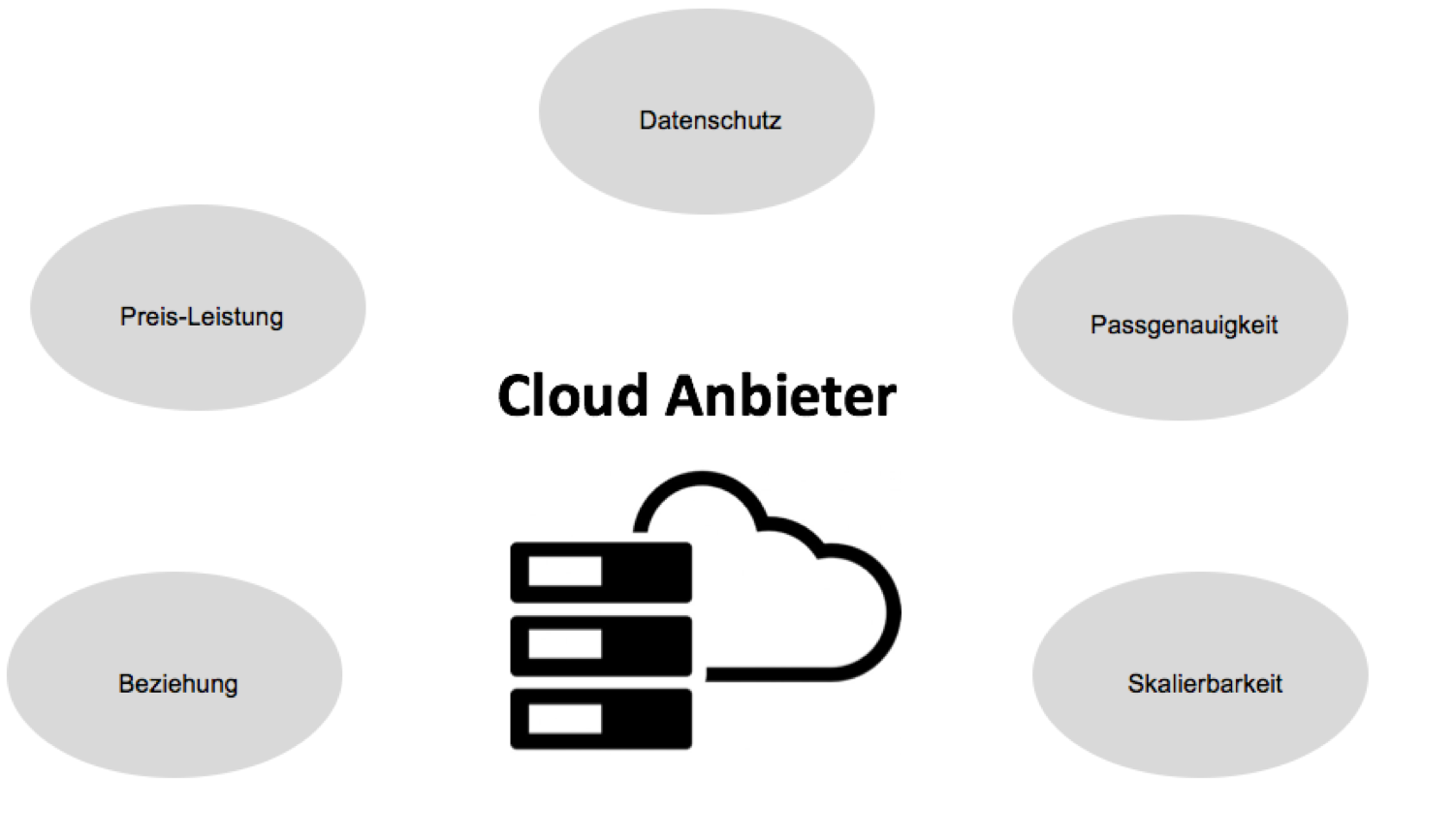“In simple terms, cloud computing is the provision of computing services (servers, storage, databases, network components, software, analysis options and more) over the Internet (” the cloud “). Companies that offer these computing services are referred to as cloud providers and provide the Cloud computing services are usually billed based on usage, as you know it from calculating your water and electricity consumption in your home. ” (Source Microsoft ). In the course of digital transformation Cloud Computing is an often mentioned word.
As already mentioned in an article on the risks of cloud computing, cloud computing requires a dependency on a cloud provider. This should therefore be carefully selected. In order to make this selection, I would like to give some tips on choosing a provider.
1. Accuracy of fit of the solution
First and foremost, the cloud provider’s standard products should match your infrastructure and your requirements. Bear in mind that every changeover costs a lot of money and that individual adaptations in particular can often negate the savings from the cloud.
2. Scalability
You certainly want to work with the service provider for a very long time. Therefore, make sure that you can also scale with this and easily book new resources with a click. Even with temporary increases, such as an increased order load or a one-time large project, the cloud must be covered.
3. Data security
Data protection is and will remain the biggest issue and must therefore be considered separately: So ask yourself: What security standards do I set myself, do the legislators and my customers set me? All three answers should be covered by the cloud provider.
4. Value for money
Cloud providers cost money. Somehow logical, but it’s also worth comparing prices here. The question is therefore: What does the service provider offer for the agreed price and is that still in line with the other providers?
5. Relationship with the provider
Perhaps you are lucky and you already know a cloud provider from previous cooperation, which you noticed positively and which you already trust. When it comes to data protection in particular, you can of course rely on certifications and compliance with the EU GDPR. However, a personal relationship can more easily generate the required trust.
Conclusion
In my current job, I also advise customers on questions about the cloud. I notice that there is a lot of uncertainty when it comes to making a choice. This is surely due to the fact that many companies are still more of a wait-and-see attitude towards the cloud. Therefore, read my 2 articles on the risks and opportunities of cloud computing:
Reading tip:
Of course, the article does not cover all of the factors to choose from and certainly these are not listed in full detail. But I think the article can provide initial guidance and you can base your thoughts on it.
Tip: Book suggestions to cloud computing




